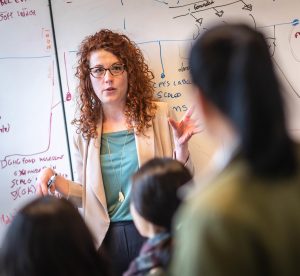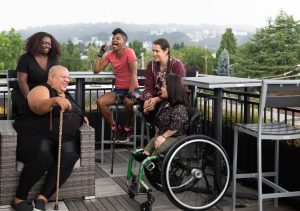JRNL 425 Journalism and Social Change Movements
Critique the role journalism and news coverage have played in major social movements in Canada and internationally. Learn how journalism has catalyzed, promoted, misrepresented, or undermined social change through news reporting.
JRNL 420 Decoding Social Media
Identify and understand impacts and implications of social media on journalism and society. Apply social media tools and practices in storytelling and engagement with users.
JRNL 325 Fundamentals of Community Reporting
Situates journalism practice in the context of social change and explores the unfair power dynamics inherent in deep reporting and storytelling.
JRNL 320 Multimedia Journalism
Principles of multimedia storytelling with hands-on journalistic methods in information gathering, fact-checking, and ethical decision making.
JRNL 201 Introduction to News Audiences
Introduction to the evolution of news audiences and their relationships with journalists. Examines different approaches to audience engagement and various forms of such engagement.
WRDS 450
Writing Practices for Publics & Publications
Writing processes and strategies conducive to developing larger, long-term research projects into genres of writing intended to publicly engage with scholars, activists, and intellectuals.
WRDS 400
Writing and Communication Capstone
Critical assessment of approaches to writing and communication. Key principles of the field applied to public and professional domains relevant to students’ future work, studies, service, or work.
WRDS 390 Writing Disability
Explores disability theories, to understand their connections to writing and discourse studies.
WRDS 370 Research Writing and Marginalization
Examines how marginalized groups are positioned in research writing. Focuses on the role of power, knowledge, and ethics in shaping language features and textual structures of research writing.
WRDS 360 Knowledge popularization: Research Writing in New Media
Rhetorical purposes, moves and features of new media genres that use or transform research for public audiences. Provides opportunities for students to analyze, critically assess, and produce these genres themselves.









